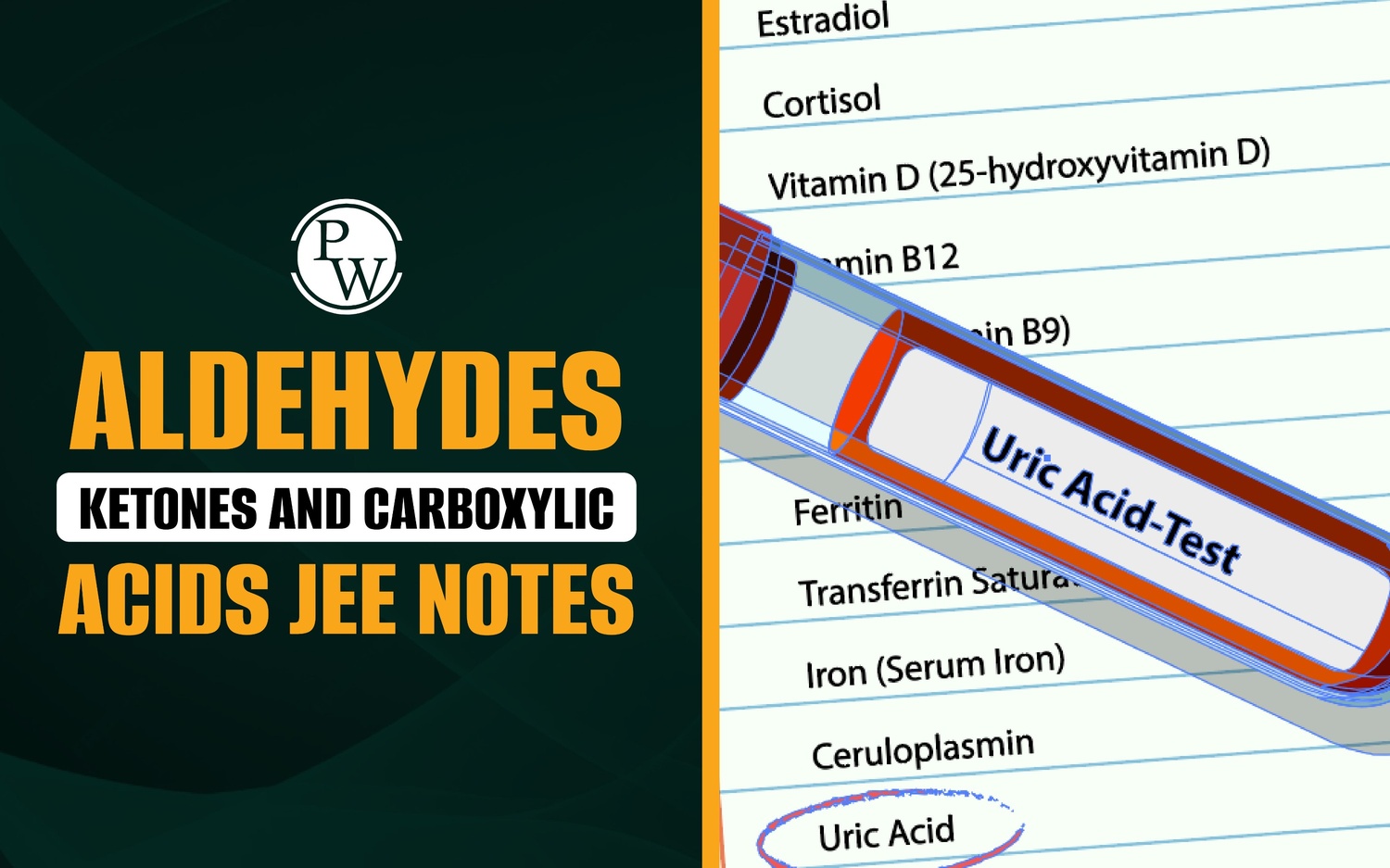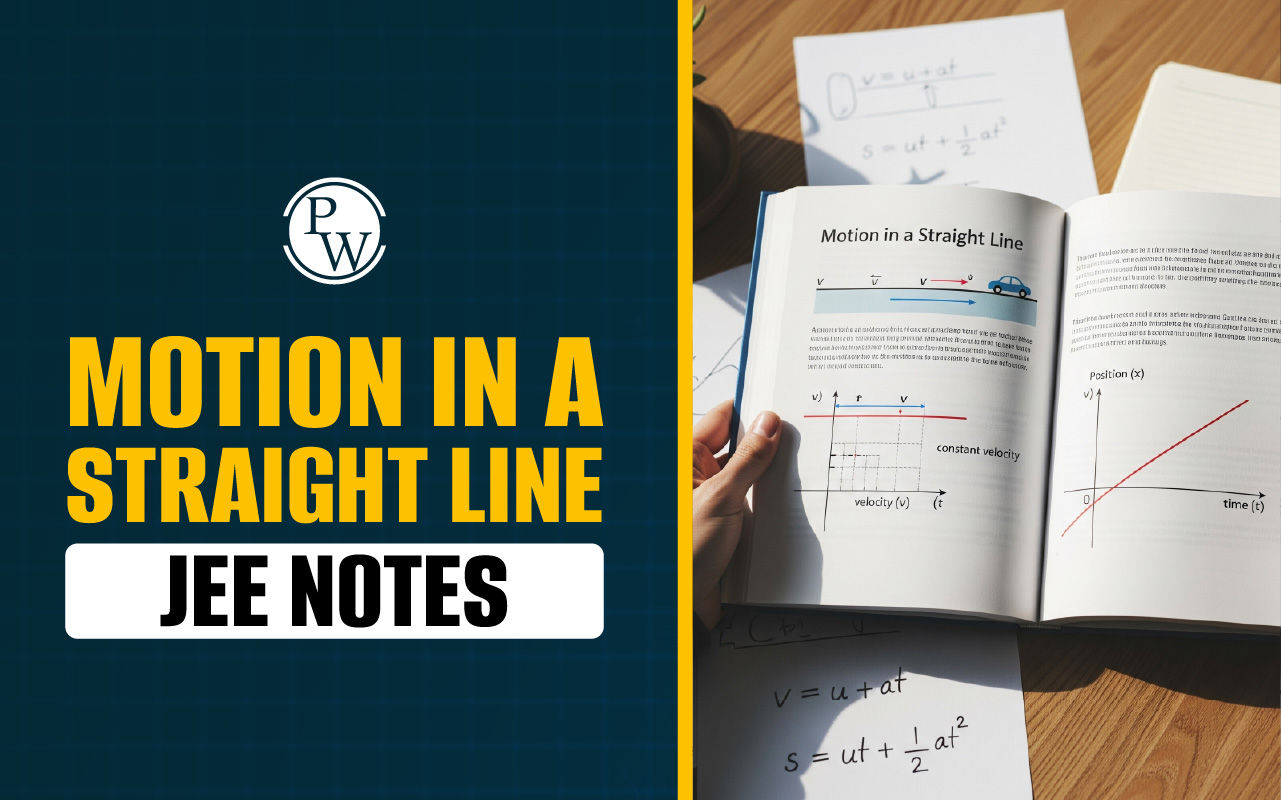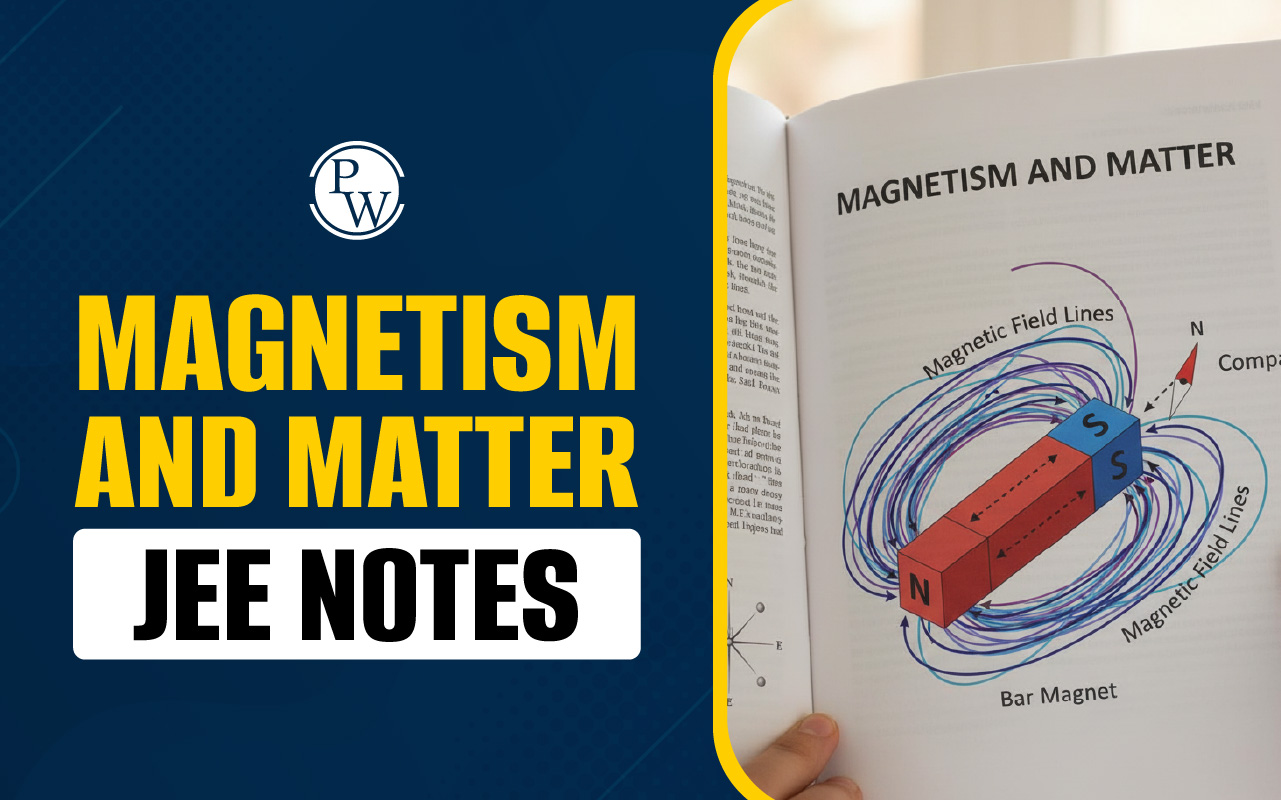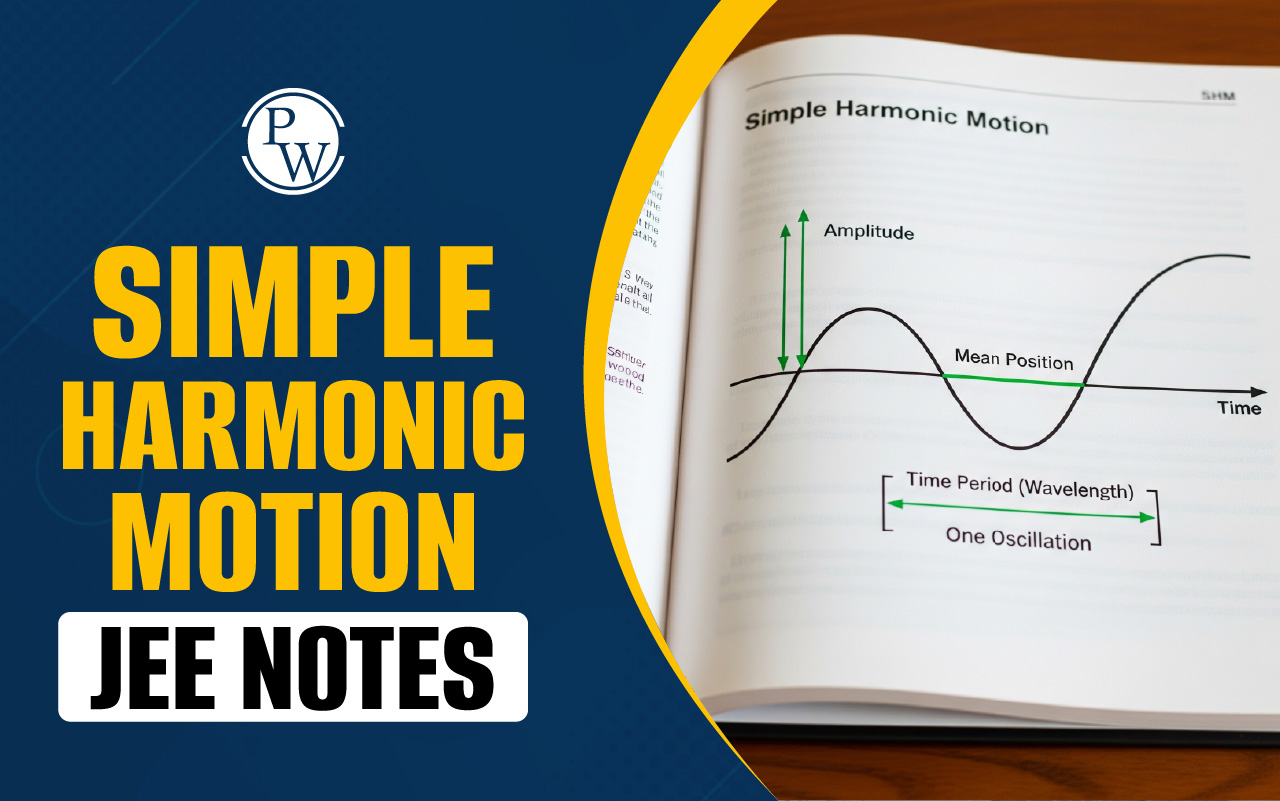
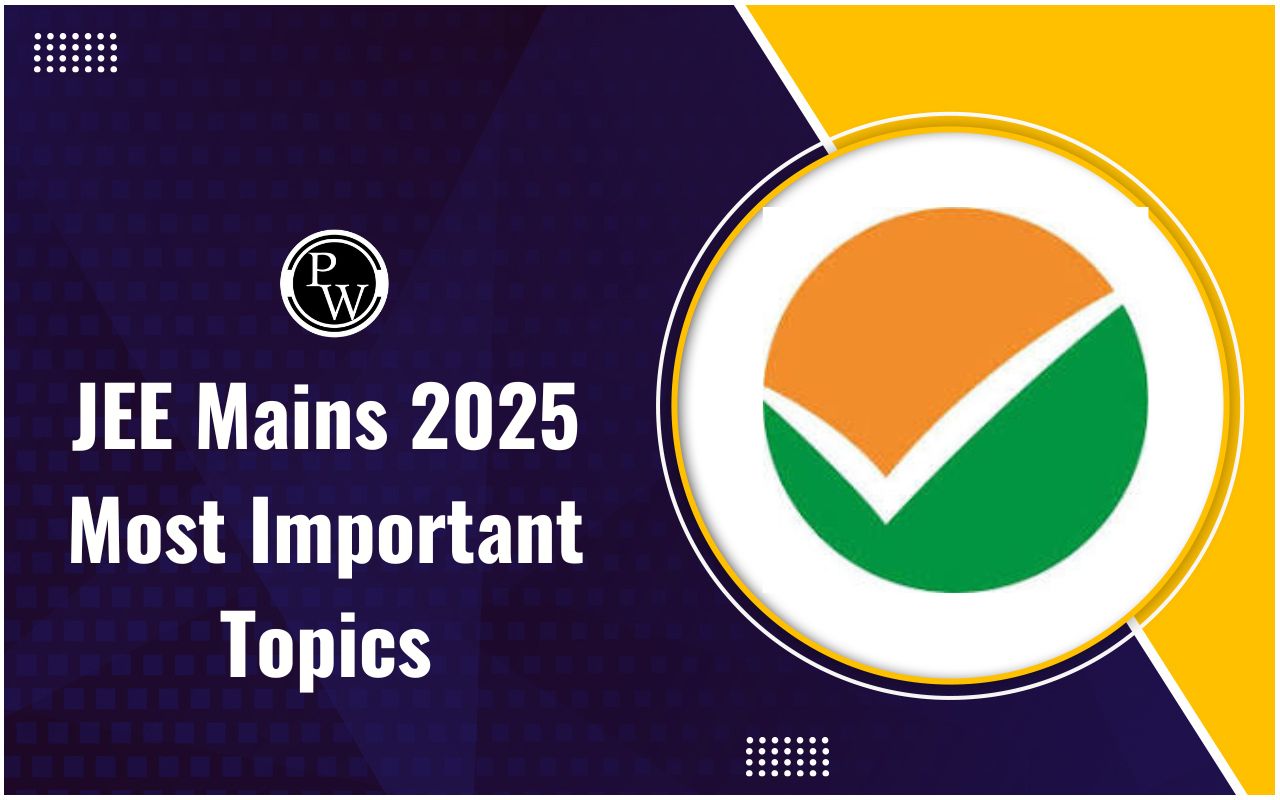
JEE Mains 2025 Most Important Topics to Cover in the Last 30 Days: The JEE Main 2025 Session 1 exams are scheduled to take place from January 22 to 31, 2025. With only 30 days left, students must focus on the most important topics to maximize their scores. This is the time to prioritize, revise, and strengthen concepts that carry significant weightage in the exam. Knowing how to cover the JEE Mains 2025-most important topics in the last 30 days can make a substantial difference in performance. Keep reading to find out the key topics in Physics, Chemistry, and Mathematics to streamline your JEE Main 2025 preparation in the final stretch.
Also read: Toughest Chapters In JEE Mains 2025 For Physics, Chemistry And Mathematics, Important Tips
JEE Mains 2025 Most Important Topics to Cover in the Last 30 Days
With the JEE Main 2025 January Session just around the corner, students are entering the final and most critical phase of preparation. To qualify for JEE Advanced 2025 , aspirants should aim for a score of 150+ in JEE Main, while those targeting top NITs need to push their efforts towards securing 200+ marks. Achieving a score of 220+ demands a strategic approach and focused preparation on high-weightage topics in Physics, Chemistry, and Mathematics.
Based on previous trends, aspirants should target specific subject-wise scores and question attempts to meet these benchmarks. For instance, scoring 220+ marks requires attempting 20 questions in Physics and Chemistry each and 15 in Mathematics with high accuracy. Let's take a look at the JEE Mains 2025-Most Important Topics to Cover in the Last 30 Days now.
Suggested read: Score 99 Percentile in JEE Main January Session 2025Subject-Wise Must Do Topics for JEE Main 2025 in the Last 30 Days
As the countdown for JEE Main 2025 has started, students need a focused and strategic approach to make the most of the remaining time. With just 30 days to go, prioritizing the must-do topics is important for scoring high marks and making sure of the exam readiness. These topics have consistently appeared in previous years’ papers and hold significant weight in the examination.
To make the preparation process streamlined, applicants can pick one topic each day, covering a total of 30 most important topics. This method allows a thorough revision of the JEE Mains 2025 Syllabus , focusing on topics that usually carry high-scoring questions. Find out the 30 subject-wise must do topics for JEE Main 2025 in the last 30 days as provided below.
JEE Main Mathematics 2025 Most Important Topics to Cover in the Last 30 Days
The JEE Main Mathematics Syllabus 2025 includes several high-weightage topics that demand special focus during the final month of preparation. Below is a detailed breakdown of the 30 most important chapters for JEE Main Mathematics, along with the expected number of questions:
- Matrices and Determinants : Students should focus on key concepts such as the Transpose of a Matrix, Adjoint of a Matrix, Symmetric and Skew-Symmetric Matrices, Cayley Hamilton Theorem, and Properties & Evaluation of Determinants. Approximately 2 to 3 questions are expected from this topic.
- Vector Algebra : Essential topics include the Product of Vectors, Projection of Vectors, and the Application of Vectors in geometric problems. Students can expect 1 to 2 questions from this topic in the exam.
- 3D Geometry : Focus on concepts such as the Angle between Two Lines, Shortest Distance between Lines, Intersection of Lines, Image of a Point, and the Foot of the Perpendicular from a Point. Around 2 to 3 questions are likely to appear from this topic.
- Sets, Relations & Functions : Important subtopics include the Basics of Sets & Relations, Types of Relations, Domain and Range of Functions, Composition of Functions, and Functional Equations. This chapter typically contributes 2 to 3 questions in the exam.
- Definite Integration : Concentrate on Definite Integration using Methods of Indefinite Integration, Properties of Definite Integration, Leibniz Rule, and Miscellaneous Problems. Around 1 to 2 questions are expected from this section.
- Area Under the Curves : Focus on areas bounded by different shapes, such as Parabolas and Lines, Two Parabolas, Parabolas and Circles, or any given curves. Approximately 1 to 2 questions may arise from this topic.
- Sequences and Series : The most important concepts include problems based on Arithmetic Progression (AP), Geometric Progression (GP), Sum of AP and GP, and Arithmetic and Geometric Mean. This topic generally accounts for 1 to 2 questions.
- Limits, Continuity, and Differentiability : Focus on the Evaluation of Limits, Finding Unknown Values Using Limits, Checking Continuity and Differentiability of Functions, Determining Parameters Using Continuity, and Continuous/Discontinuous Points. Students can expect 1 to 2 questions from this chapter.
By mastering these topics, students can strengthen their mathematics preparation for JEE Main 2025 and significantly improve their chances of scoring high marks.
JEE Main Chemistry 2025 Most Important Topics to Cover in the Last 30 Days
The JEE Main Chemistry Syllabus 2025 includes several high scoring topics from Organic, Inorganic, and Physical Chemistry that demand focused revision during the last month. Here’s a detailed breakdown of the most important topics along with the expected number of questions from each that applicants should focus on in the last 30 days before JEE Mains 2025:
- General Organic Chemistry (GOC) : Focus on the Basics of Organic Chemistry, including Classification, Hybridization, and Structural Representation. Key areas also include IUPAC Nomenclature and Aromaticity. Approximately 2 to 3 questions are expected from this topic.
- Chemical Bonding : Study the VSEPR Theory, Hybridization, Molecular Orbital Theory (MOT) and its Applications, and Dipole Moment. This chapter typically contributes 1 to 2 questions.
- Mole Concept : Important subtopics include Stoichiometry, Limiting Reagents, Percentage Yield, Concentration Terms, and the Principle of Atomic Conservation (PoAC). Around 1 to 2 questions are expected.
- Electrochemistry : Focus areas include the Nernst Equation, Faraday's Laws of Electrolysis, Electrolytic Conductance, Kohlrausch's Law, and their Applications. This chapter generally accounts for 1 to 2 questions.
- d- and f-Block Elements : Key topics include the Electronic Configuration of Transition and Inner Transition Elements, Properties of KMnO₄ and K₂Cr₂O₇, and Lanthanides & Actinides. Around 1 to 2 questions are expected.
- Coordination Compounds : Focus on Valence Bond Theory (VBT), Spin Magnetic Moment, Crystal Field Theory (CFT), and Isomerism in Coordination Compounds. This section typically contributes 1 to 2 questions.
- Structure of Atom : Study Bohr’s Model of the Atom, Schrödinger’s Wave Equation, Heisenberg’s Uncertainty Principle, and Quantum Numbers. Approximately 1 to 2 questions are likely from this topic.
- Aldehydes, Ketones, and Carboxylic Acids : Important subtopics include the Physical and Chemical Properties of Aldehydes, Ketones, and Carboxylic Acids, along with their preparation methods. This topic usually accounts for 1 to 2 questions.
- Biomolecules : Focus on the Properties and Functions of Carbohydrates, Proteins, Amino Acids, Vitamins, DNA, and RNA. Students can expect 1 to 2 questions from this topic.
- Haloalkanes and Haloarenes : Study the Preparation and Reactions of Alkyl and Aryl Halides (RX & ArX), and the Mechanisms of SN1 and SN2 Reactions. This chapter typically contributes 1 to 2 questions.
JEE Main Physics 2025 Most Important Topics To Cover in Last 30 Days
The JEE Main Physics Syllabus 2025 has the following must-do chapters that demand focused preparation in the final 30 days:- Current Electricity : Key concepts include Ohm's Law & Resistance, Power & Heat, Kirchhoff's Current and Voltage Laws (KCL & KVL), and Electrical Instruments. Around 2 to 3 questions are expected from this topic.
- Electrostatics : Focus areas include Coulomb's Law, Electric Dipole, and Gauss's Law. This chapter generally contributes 1 to 2 questions in the exam.
- Modern Physics : Important subtopics include the Photoelectric Effect, Alpha Particle Scattering & Rutherford Model, Bohr's Model & Hydrogen Spectrum, Nucleus & Binding Energy. Students can expect around 3 to 4 questions from this high-weightage topic.
- Heat & Thermodynamics : Concentrate on Thermometry & Thermal Expansion, Specific Heat, Calorimetry & Change of State, Laws of Thermodynamics, Thermodynamic Processes, and Heat Engines. This section typically accounts for 1 to 2 questions.
- Magnetic Effects of Current : Focus on Biot-Savart's Law and Ampere's Circuital Law, Magnetic Force, Motion of a Charged Particle in a Magnetic Field, Force and Torque on a Current-Carrying Conductor, and Moving Coil Galvanometer. Around 1 to 2 questions are expected.
- Kinematics (1D + 2D) : Essential topics include Equations of Motion, Graphical Analysis, Relative Motion in One and Two Dimensions, and Projectile Motion. Approximately 1 to 2 questions are likely from this chapter.
- Units, Dimensions, Errors & Vectors : Study Physical Quantities, Errors and Significant Figures, and Dimensional Analysis. This chapter typically contributes 1 to 2 questions.
- Center of Mass & Rotational Motion : Key topics include Angular Momentum, Moment of Inertia, and Rotational Kinetic Energy. Around 1 to 2 questions are expected.
- Alternating Current : Focus areas include AC Circuits and Power in AC Circuits, Growth and Decay of Current, Energy Stored in AC Circuits, AC Generators, and Transformers. This section usually has 1 to 2 questions.
- Properties of Matter : Study Young's Modulus, Bulk Modulus, Viscosity, Terminal Velocity, Bernoulli's Principle, Surface Energy, and Applications of Surface Tension. Students can expect 1 to 2 questions from this topic.
JEE Mains 2025 Most Important Topics to Cover in the Last 30 Days—Preparation Tips
- Use the PW JEE Test Series to simulate the exam environment and identify specific weak areas in Physics, Chemistry, and Mathematics.
To enhance JEE Main 2025 preparation, enroll in the PW JEE Online Test Series . This series provides a structured and realistic approach to practicing for the exam. It includes a wide range of practice sets that replicate the actual JEE exam format, helping students gain confidence, improve their speed, and fine-tune their problem-solving abilities.
| PW Online Test Series for JEE 2025 | ||
| Name of the Test Series | Price | Link To Enroll |
| Lakshya JEE 2025 Test Series | INR 1,000 (50% OFF from INR 2,000) | Explore Here! |
| Arjuna JEE 2025 Test Series | INR 1,000 (50% OFF from INR 2,000) | Explore Here! |
| Prayas JEE 2025 Test Series | INR 1,000 (50% OFF from INR 2,000) | Explore Here! |
- Focus on recurring mistakes and prioritize improving accuracy in those topics. The detailed analysis provided in the test series helps fine-tune preparation by targeting problem areas effectively.
- Refer to the PW JEE Previous Year Question Bank to practice high-weightage topics such as matrices, definite integration, electrostatics, and organic chemistry.
- Pay special attention to tricky concepts by reviewing detailed solutions provided in the question bank.
- Attempt these questions in a timed manner to enhance speed and accuracy.
- Analyze time management skills and practice prioritizing easier questions to maximize scores.
Study Material For JEE Main 2025 Preparation
Physics Wallah (PW) offers comprehensive study material for JEE 2025 , designed to help students excel in this competitive exam. The material includes detailed theory notes, practice questions, previous years’ papers, and mock tests for Physics, Chemistry, and Mathematics. Each topic is explained with clear concepts and illustrated examples, ensuring a strong foundationJEE Mains 2025, Most Important Topics FAQs
Ques. What are the most important physics topics to focus on in the last 30 days for JEE Mains 2025?
Ques. What are the most important topics to cover in the last 30 days for JEE Main Chemistry 2025?
Ques. How much time should I dedicate in the last 30 days for JEE Mains 2025?
Ques. What are the most important topics to cover in the last 30 days for the JEE Mains Maths section?


